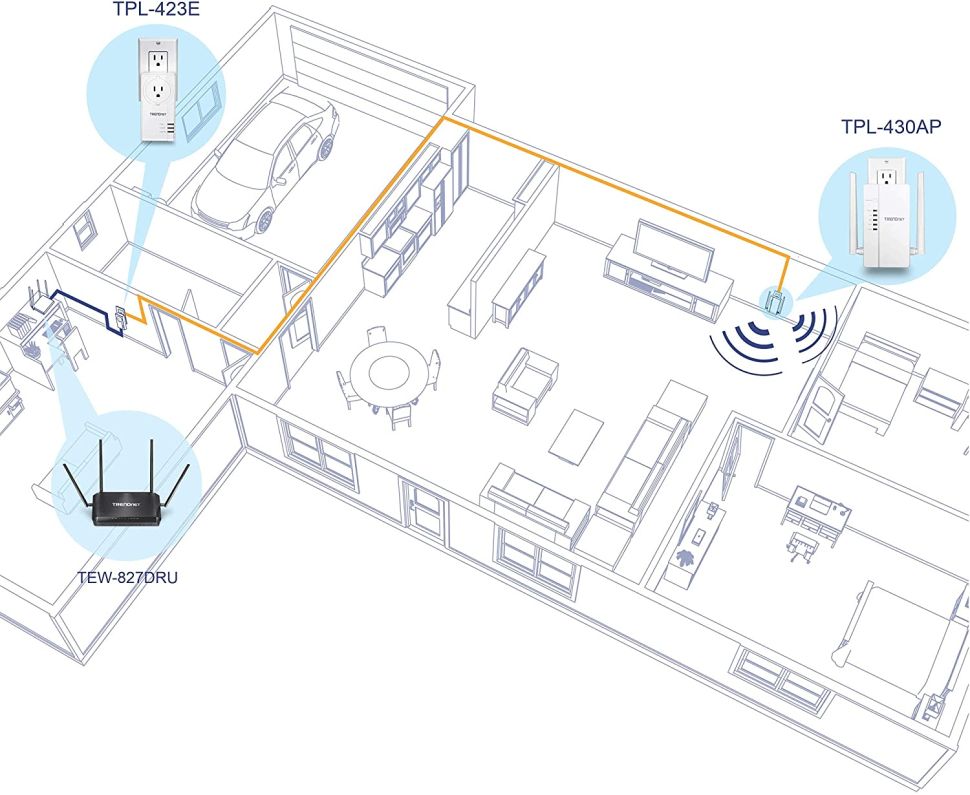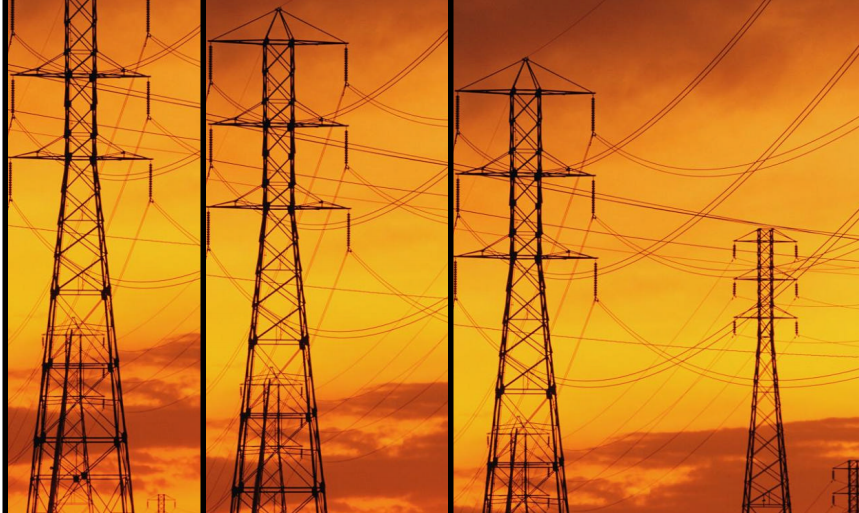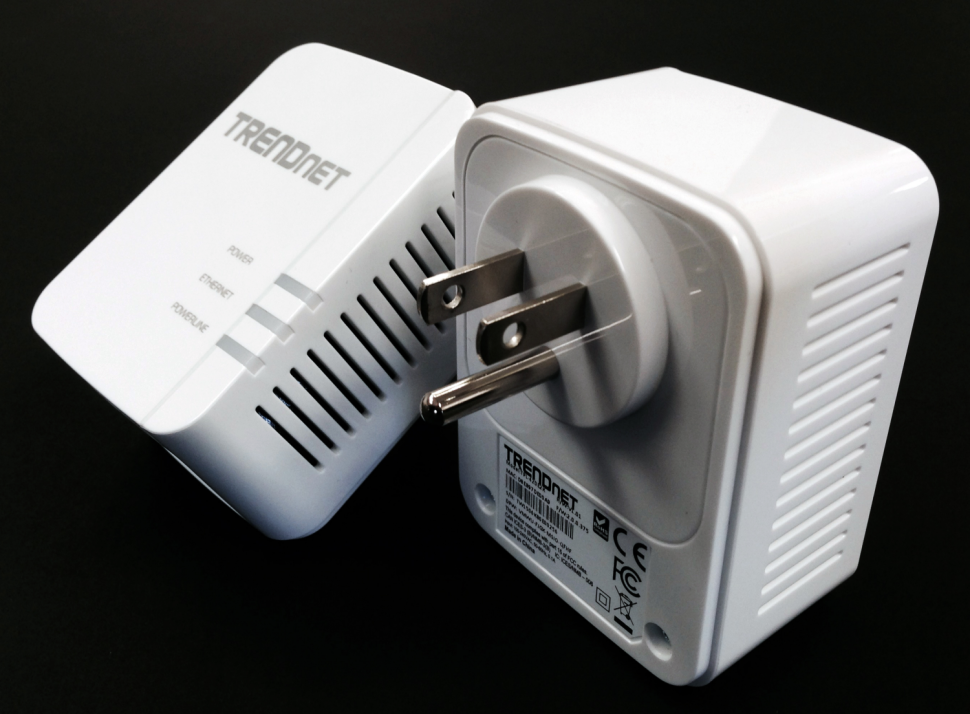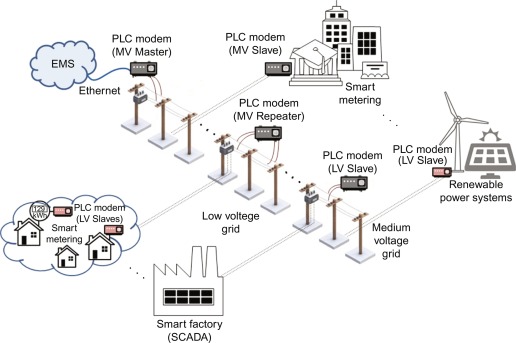
Powerline internet has gained popularity over the years as an ideal solution to getting better internet reception through your home. There have been good reviews on it due to fast and stable connection speeds. Also, the idea of internet connection running through power lines has led some to consider replacing their current internet service with Powerline internet.
However, this is not viable as a broadband provider over a network more expansive than your home. In this article, we will explain why.
What is Powerline internet?

Powerline internet is a technology that extends your internet network by utilizing the electrical power wiring that runs through your home. It works by the same principle as ethernet or wired connectivity but using the 120-volt alternating current in the electric wiring system to transmit network data. From there, you can pull the internet out of any AC socket in your house, even in rooms where your WiFi cannot reach.
To connect to your power lines, you will need a powerline adapter set, which typically contains two adapters – a sender and a receiver. You should also already have an existing internet plan because you will need to connect the adapter to your router or modem with an ethernet cable for the internet to flow through your house’s electrical system.
The beauty of the Powerline networking solution is you can go to any other AC outlet in your house and connect it to your computer or gadget, using the receiving part of the adapter set. This is very useful for instances where you need an internet connection in parts of your house that the WiFi cannot reach.
For example, you need to stream a video tutorial inside your garage, or there is more than one work-from-home station in the residence, and one is in a room that is a WiFi dead spot. Or you just want to Netflix and chill in your bedroom in peace, but it’s too far away from your modem.
What is the difference between Powerline internet and WiFi extenders?

A WiFi extender or signal booster works similarly to a Powerline connection in the way it broadens the reach of the WiFi signal, but by grabbing the signal and projecting it further outward.
WiFi extenders are the more popular option, and there are many devices available while there are fewer models of Powerline adapters from which to choose. Newer models of Powerline adapters have incorporated antennae in the receiver to act as bonus WiFi extenders, ensuring that there is more internet to go around, projecting data to even 50 or 100 feet from the device. These WiFi-Powerline hybrids are expectedly much more expensive.
Many Powerline network users tend to rave about it, mainly because of the stable connection and fast speeds due to the power wires. Unlike WiFi, which may lag for various reasons, especially if the signal glitches, Powerline internet is generally reliable and constant. However, it may slow down if other appliances, such as air conditioners, run laboriously at the same time. In other cases, powerline networking may not work in older houses or those with a problematic wiring system.
So Powerline internet is not an ISP?

Powerline internet is only a solution to extending wired and wireless internet further than the original set up has allowed. It is not a source of the internet itself, and therefore cannot be a viable option as a service provider.
Can Powerline internet be developed as an ISP?

Powerline connectivity can be developed as an ISP if internet service providers develop existing power lines by integrating optic fiber and setting up the system and human resources to accommodate the technology. As you can imagine, such a complicated implementation may take decades. Similarly, fiber optic internet has also taken its time to roll out due to the magnitude of the work required.
One of the reasons why there are hardly any proposals for Powerline development is by the time all electrical cabling has been optimized for independent data transmission, the technology will be outdated. There will undoubtedly be many technical advances from ISPs, particularly for wireless connectivity, by then.
Another reason is that, while Powerline networking works efficiently in a few households per district, the experience will not be the same if most of the neighborhood has to share bandwidth through electrical wires. For all its speed and reliability, Powerline networking in your home is vastly different from implementing broadband over power lines.
Final Word
In a nutshell, Powerline internet will not be a viable ISP option for now. Aside from its complicated execution, development of the technology is extremely slow. By this time, existing fiber-optic broadband will be more competitive. Many anticipate that WiFi connections will improve, instead, offsetting the need for Powerline internet.




